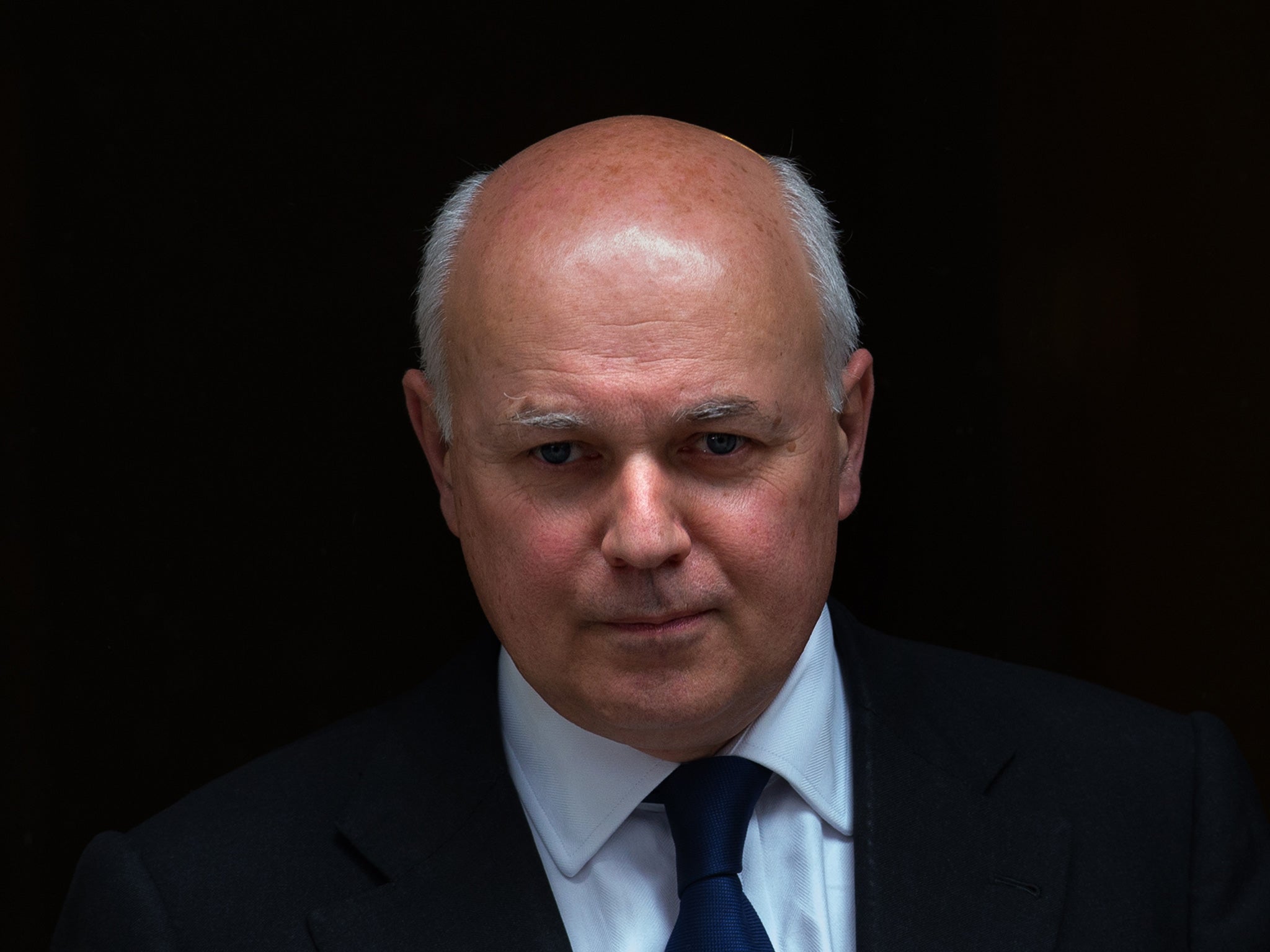Iain Duncan Smith is offering £140,000 a year for someone to take charge of his troubled Universal Credit programme
The successful candidate will be among the top-paid civil servants and will earn more than the Work and Pensions Secretary himself

Your support helps us to tell the story
From reproductive rights to climate change to Big Tech, The Independent is on the ground when the story is developing. Whether it's investigating the financials of Elon Musk's pro-Trump PAC or producing our latest documentary, 'The A Word', which shines a light on the American women fighting for reproductive rights, we know how important it is to parse out the facts from the messaging.
At such a critical moment in US history, we need reporters on the ground. Your donation allows us to keep sending journalists to speak to both sides of the story.
The Independent is trusted by Americans across the entire political spectrum. And unlike many other quality news outlets, we choose not to lock Americans out of our reporting and analysis with paywalls. We believe quality journalism should be available to everyone, paid for by those who can afford it.
Your support makes all the difference.Iain Duncan Smith is recruiting a new £140,000-a-year director of his troubled welfare reform project Universal Credit – barely a year after the last change of leadership.
The job is among the top paying jobs in the civil service – more than the Work and Pensions Secretary earns himself.
The advert for the role – posted on the Civil Service Jobs website - says the Department for Work and Pensions is seeking someone to develop and implement the £2bn Universal Credit programme, the Government’s flagship welfare reform project that will merge six benefits into one payment over the next five years.
However the programme has been beset by problems since Mr Duncan Smith announced in 2011 that 1m people would be on the benefit by April 2014.
Only 7,000 people were on the benefit by then and the latest figures showed there were just 141,000 people claiming Universal Credit in October 2015, while 2016 roll-out in April will cover less than 400,000 more.
The Office for Budget Responsibility revealed further delays in the roll-out last month and the latest forecast for completion is by the end of the 2020/2021 financial year.
Millions of pounds have already been written off due to IT problems in getting the new system working and several senior managers have resigned or left their roles.
Howard Shiplee was the latest official to quit the project last year as director general after just over a year in the job, following Terry Moran and renowned IT expert Philip Langsdale out the exit door.
Neil Couling was promoted to director general of Universal Credit after Mr Shiplee's departure and the department told The Independent that he remains in his position.
A spokesman said the advert is part of a routine practice to hold an open recruitment process when a vacancy comes up and Mr Couling will have to apply for the job along with any other candidates.
The department has only just advertised for the role, despite Mr Couling having served in the position since October last year.
The successful candidate will be in charge of 600 staff working on the transition to Universal Credit and a £1.7bn budget.
The advert says candidates must have “a track record of success in delivering very large complex business transformations” and must have the ability to “influence and challenge at the most senior levels in order to realise the business benefits of the programme”.
The six benefits that Universal Credit will replace are: Jobseeker’s Allowance, Employment and Support Allowance, Income Support, Child Tax Credit, Working Tax Credit and Housing Benefit.
Much of the delay is due to problems with the complex new IT system that is needed for Universal Credit to work – it relies on real-time sharing of information between DWP and HM Revenue and Customs, two of the Government’s largest departments.
The £140,000 role comes with several benefits, such as flexible working hours, “family friendly policies” that include part time and part-year contracts, childcare provision and relocation expenses.
The advert states: “This is a critical role for the Department, and for the Government. If you are excited by this high profile challenge to deliver an ambitious, once in a generation, programme of welfare reform.”
A DWP spokesman said: “The director general of Universal Credit was appointed to his post on a personal promotion. In line with Civil Service recruitment guidelines the post is now being advertised externally.
“Universal Credit is successfully rolling out across the country and is currently in over three quarters of all Jobcentres. Under UC claimants are moving into work quicker and earning more.”
Join our commenting forum
Join thought-provoking conversations, follow other Independent readers and see their replies
Comments